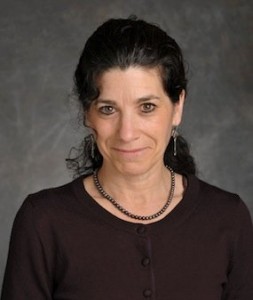 Deborah Estrin
Deborah Estrin
ResearchKit is finally coming to Android. Or at least, ResearchStack, a comparable and compatible research framework for Android devices is coming to Android. The project is being developed by Open mHealth and Cornell Tech, led by Deborah Estrin and funded by the Robert Wood Johnson Foundation. Android development shop touchlab is doing the design and implementation along with Michael Carroll, CTO of healthcare startup RubiconMD.
"The day after I heard about [ResearchKit] I thought 'who’s going to do the Android version?'," Estrin told MobiHealthNews. "I talked to folks at MIT and Google and I couldn’t find anyone doing the Android version. And I waited and kept talking to people but, nothing was happening. ... And because Open mHealth was already a nonprofit honest broker in the mobile health space, we jumped in and we did it."
The RWJF money will fund the group through the development of the overall framework and the release of at least one app, Oregon Health and Sciences University’s Mole Mapper. They're hoping to have that released in beta by January 2016. Other researchers have already begun to contact Open mHealth, and the group may work with some of them as well.
But the framework will be open source, just like ResearchKit itself, so other research app developers will be able to use the tools to build an Android app much more easily than they could before. The goal is to make it as easy to build a ResearchStack app as it is to build a ResearchKit app now, and to make it easy to create an app on both platforms at once without having to double too much work.
Estrin said Mole Mapper was the right level of difficulty for a first app because "it involves some sensor input from camera, so it’s not only self-report surveys. That’s critical. Yet you’re not upfront dealing with calibrating different devices."
The mPower Parkinson's app, for instance, will be harder to port to Android because calibrating the tap test on different devices will be more time-consuming, Estrin said. But certainly it can be done.
The ResearchStack team isn't working directly with either Apple or Google, but Estrin has been in touch with Sage Bionetworks, which runs the data backend for most of the original ResearchKit apps and had a hand in bringing Mole Mapper to market as a ResearchKit app. She's also spoken to a number of individuals in different teams at Google who she says support the work and are happy to offer advice as it goes forward. And they're also working with some other teams that had begun the work on their own, including UCLA's Nino Guba (who the team found via MobiHealthNews).
As has been pointed out before, expanding ResearchKit studies to Android users won't just increase the number of participants, it also eliminates a possible socio-economic selection bias.
"Outside of New York City, Android is dominate, and by demographic there are more lower-cost options for buying an Android phone then for buying an iOS device," Estrin said. "But it’s not like ‘Oh those ResearchKit people only cared about rich white people’. It wasn’t that at all. It was a great pragmatic, effective move to get ResearchKit out there and it makes great common sense to have this available on Android as well."


















